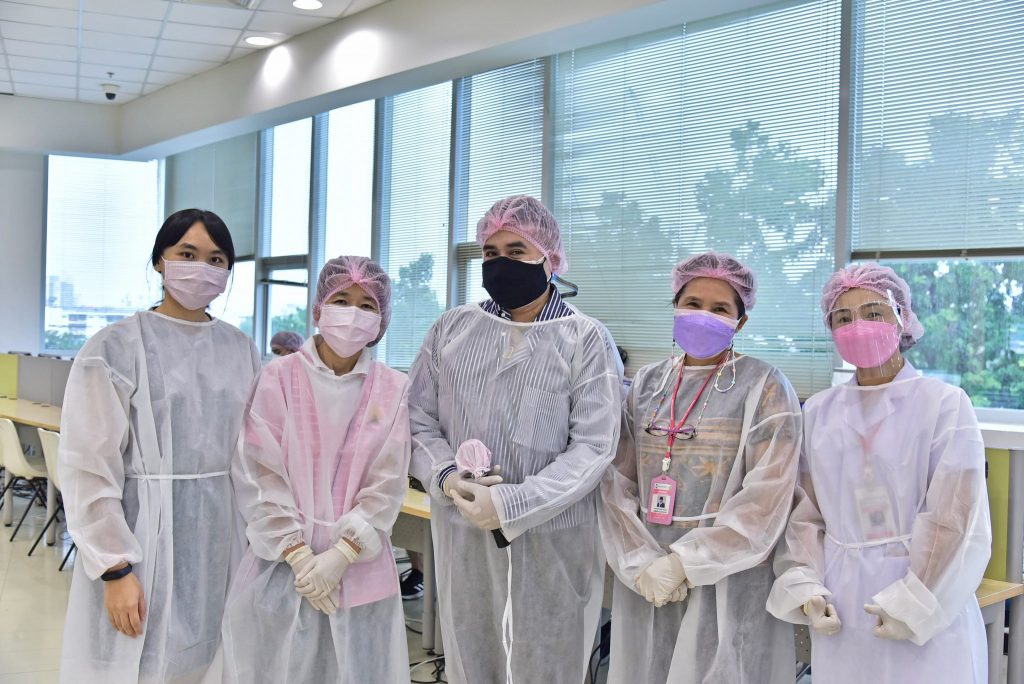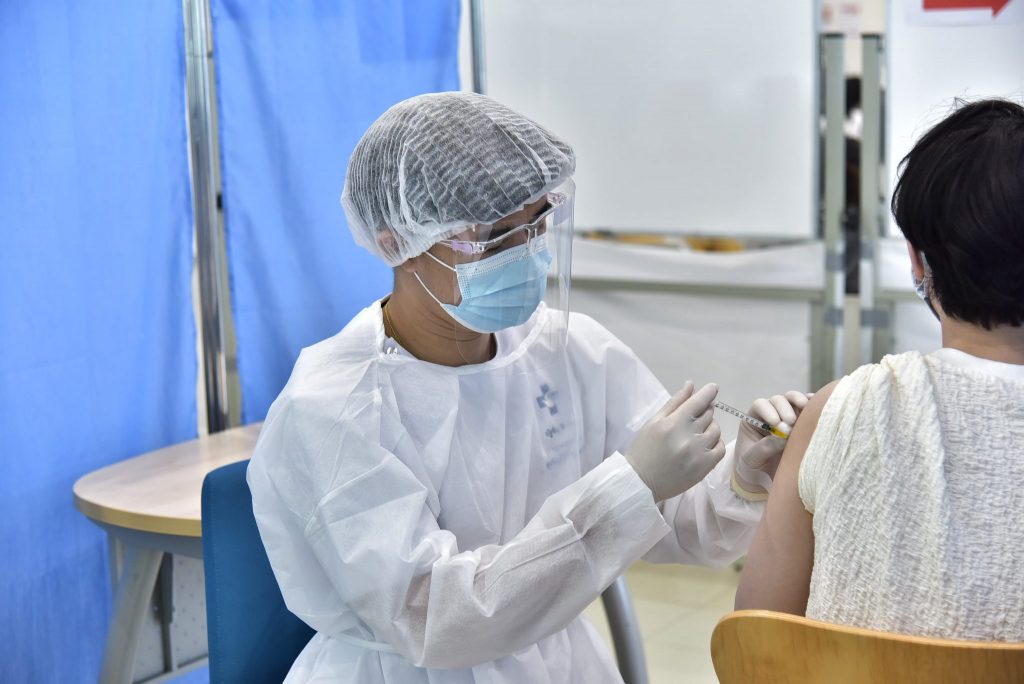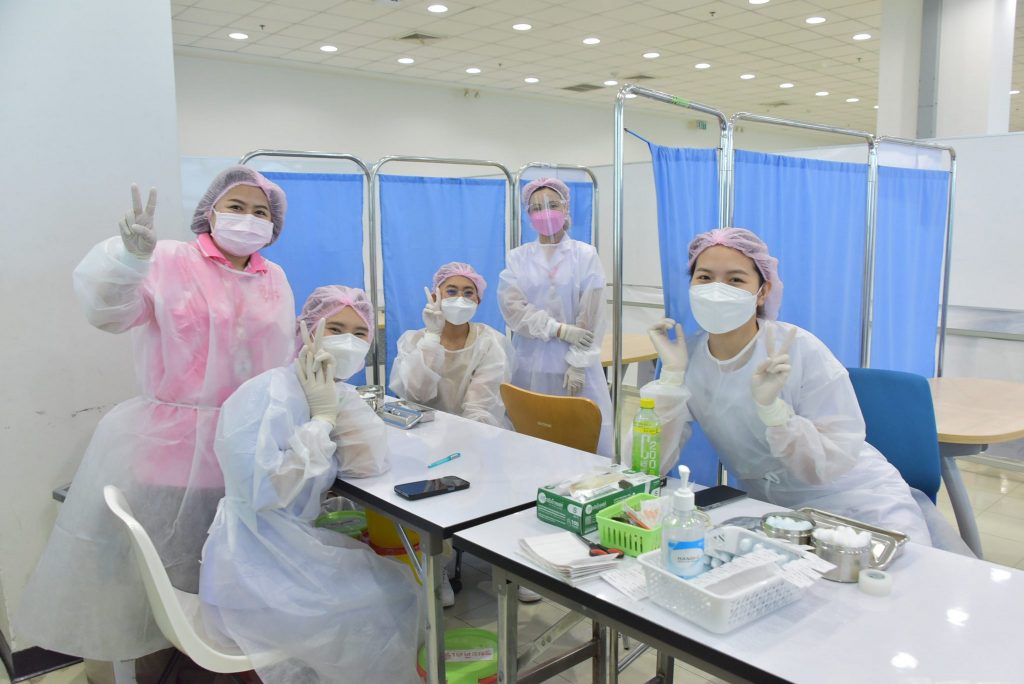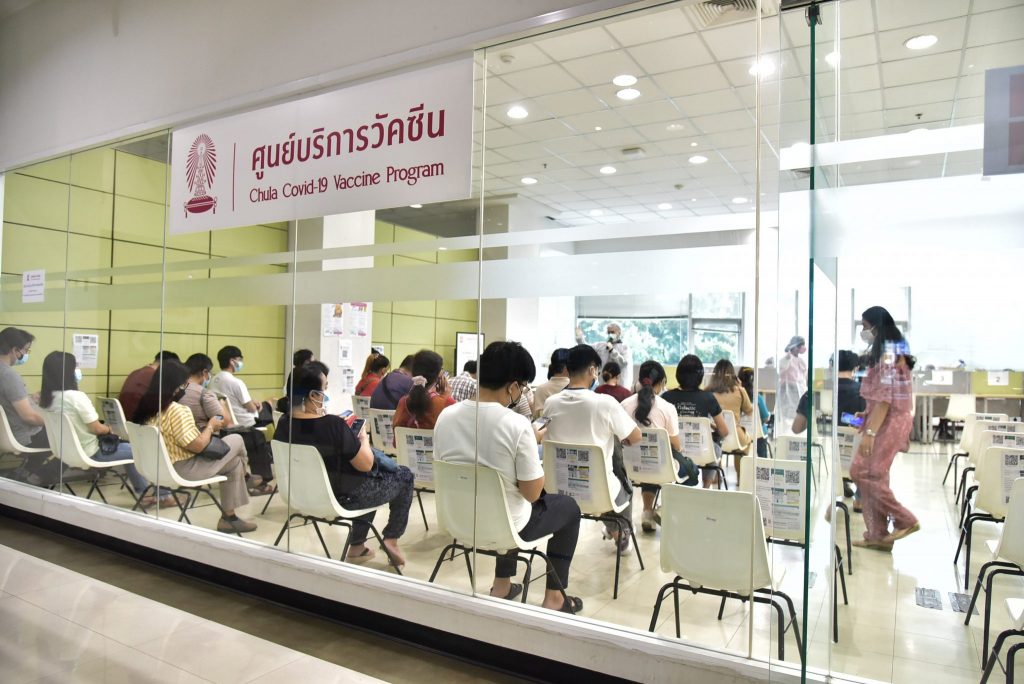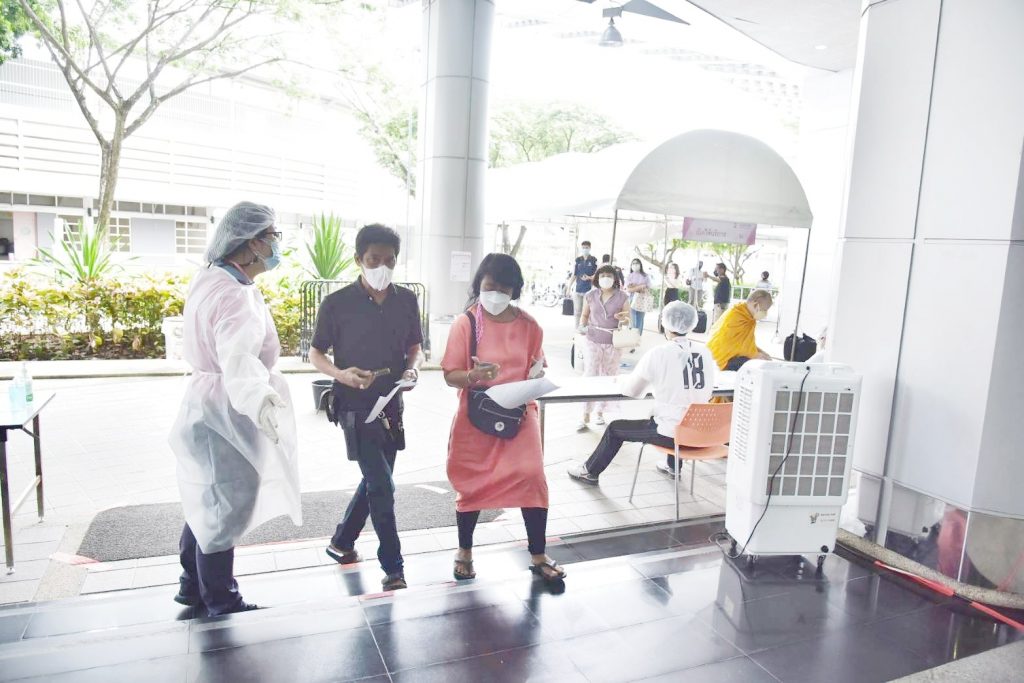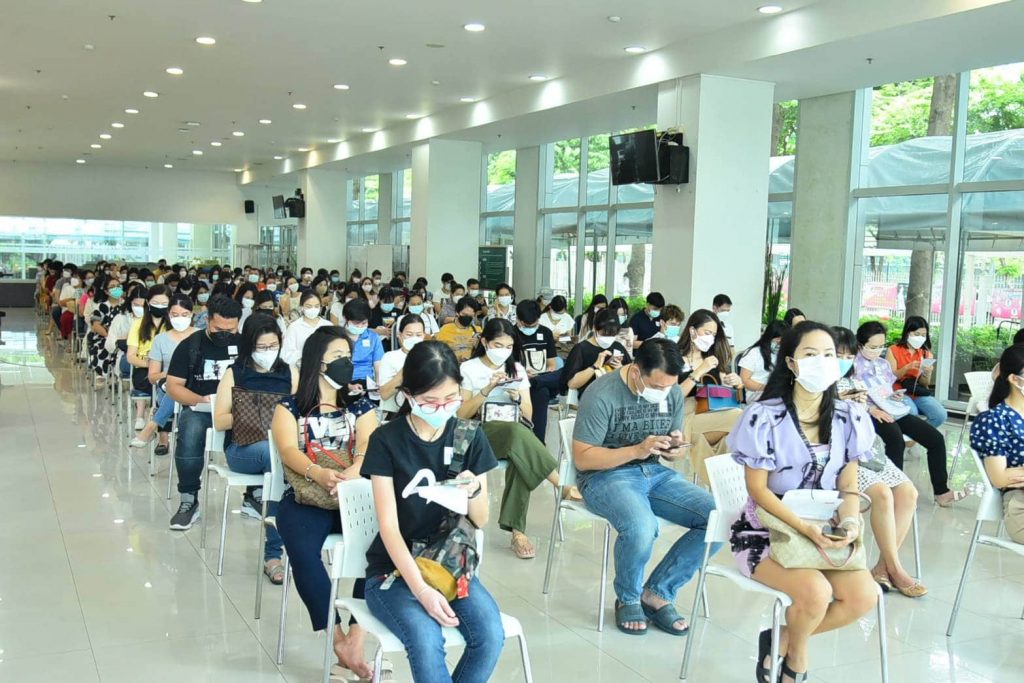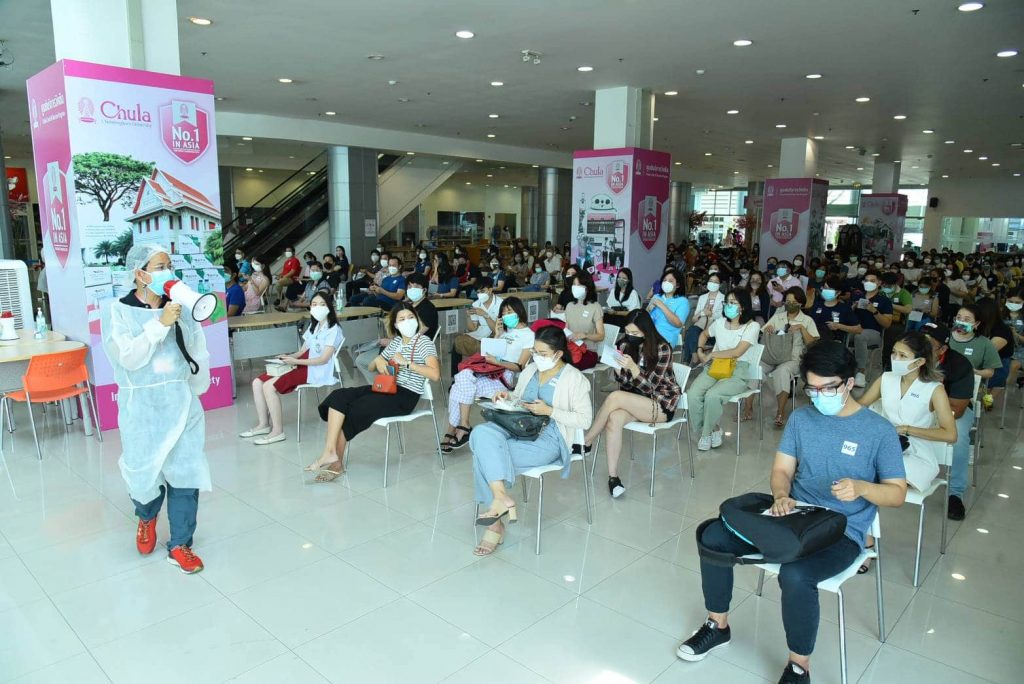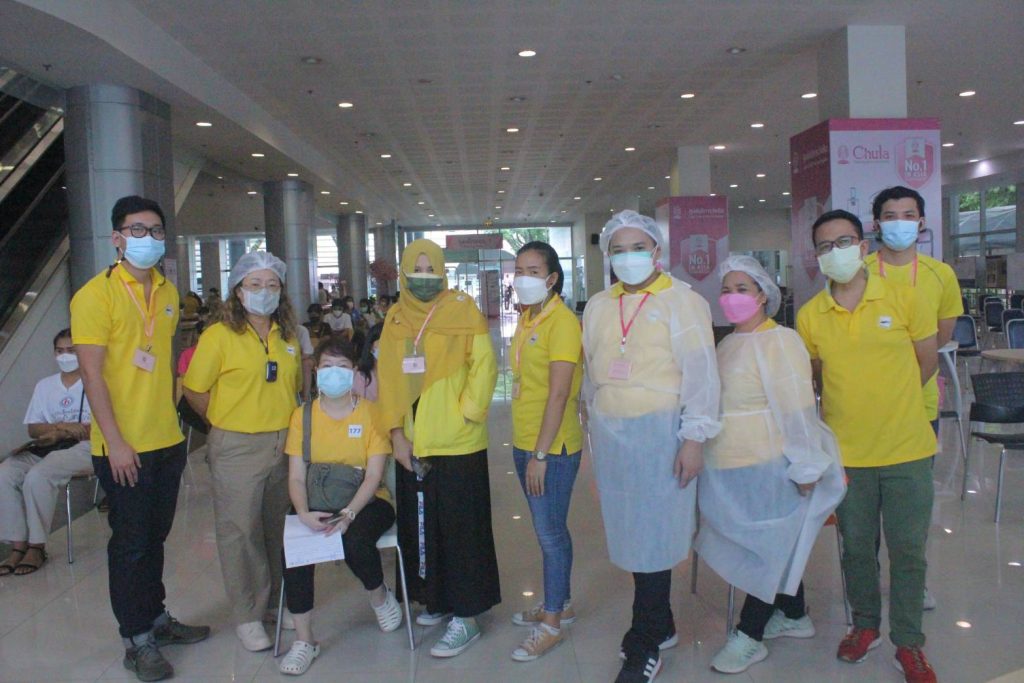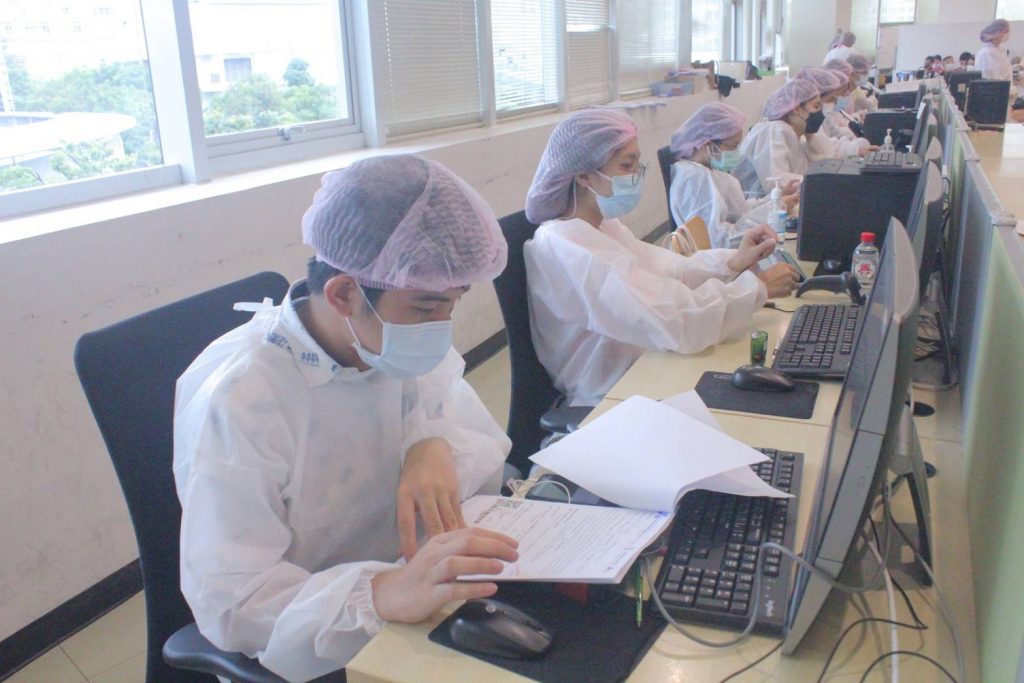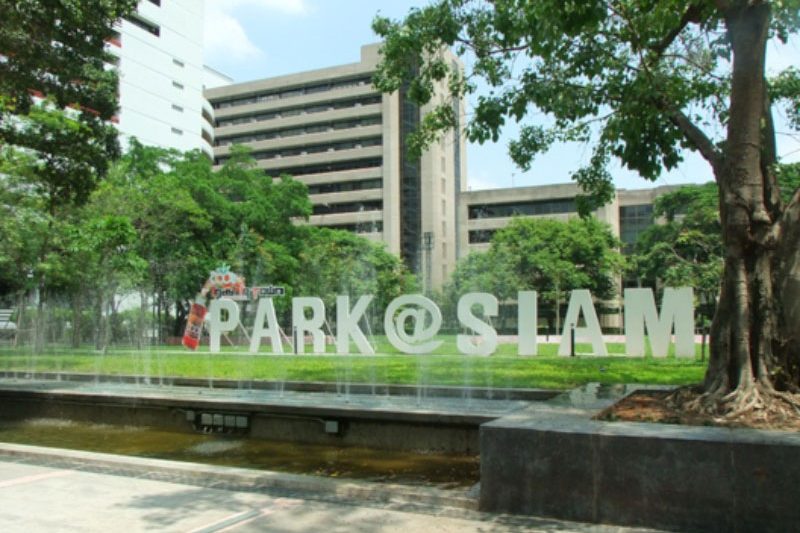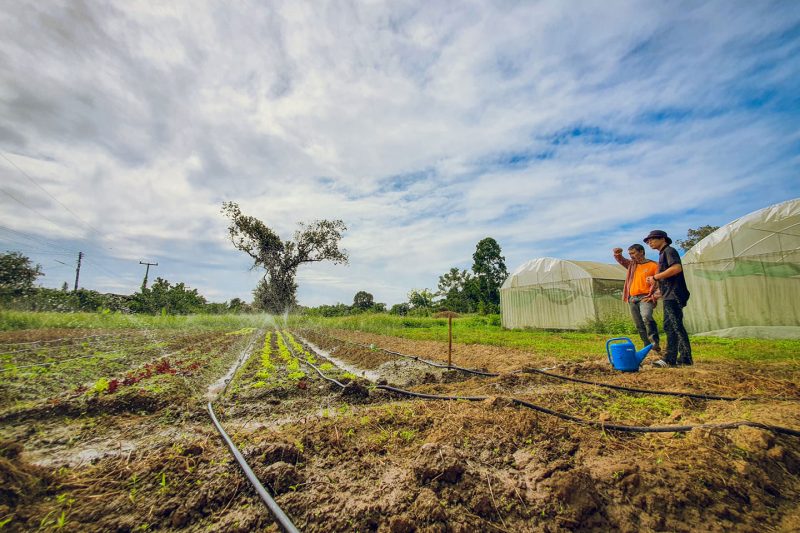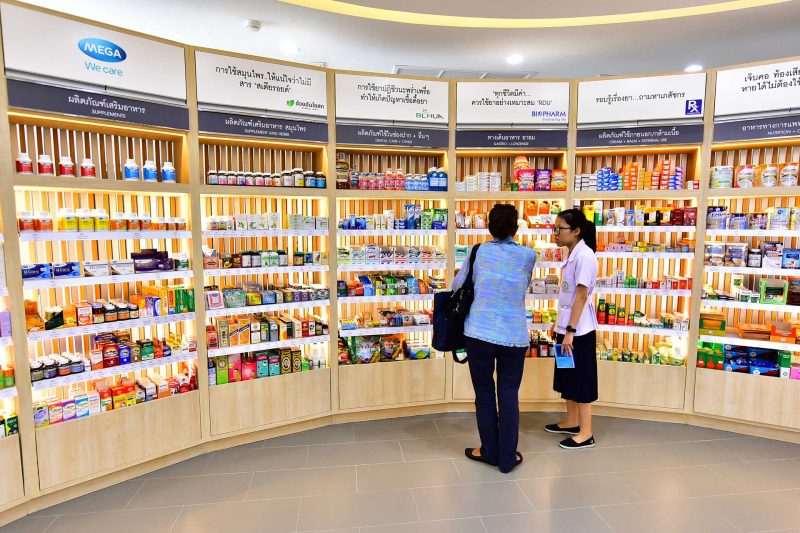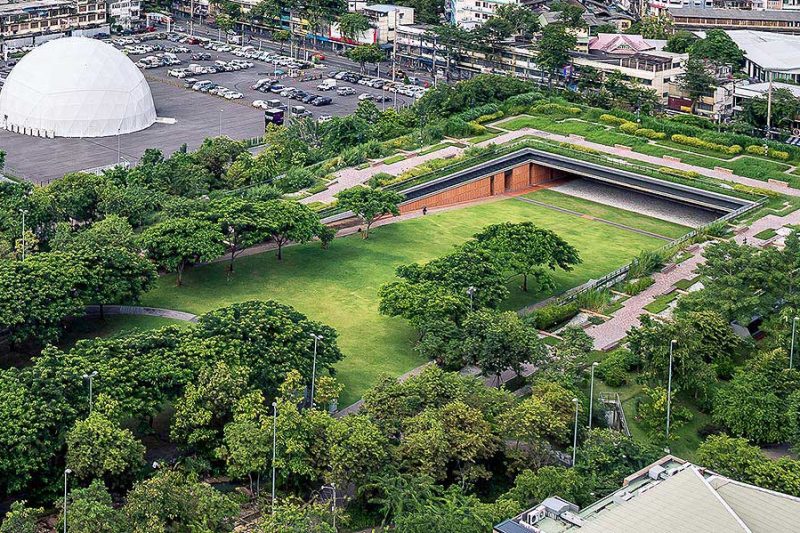COVID-19 Multidimensional strategies; Diagnosis, Treatment, and Vaccination
During COVID-19, Chulalongkorn University contributed numerous research, services, and innovations to society in order to relive the stressful situation. This included diagnosis methods, healthcare online platforms (virtual wards) and vaccine centers.
Diagnosis
COVID-19 is an infectious disease causing respiratory syndrome. Early detection has become one of the most successful strategies to fight the disease. Chulalongkorn University developed the testing method using a CRISPR-Cas12a-based assay using saliva samples. This method can detect Alpha, Beta, and Delta strains as well as the Omicron strain in early 2022 with high sensitivity, specificity, and diagnostic accuracy (96.86%). The test successfully utilised the assay in an active case finding with a total number of 578 asymptomatic participants (Including migrants who are workers under the Office of Property Management, Chulalongkorn University: PMCU) to detect SARS-CoV-2 in saliva samples.
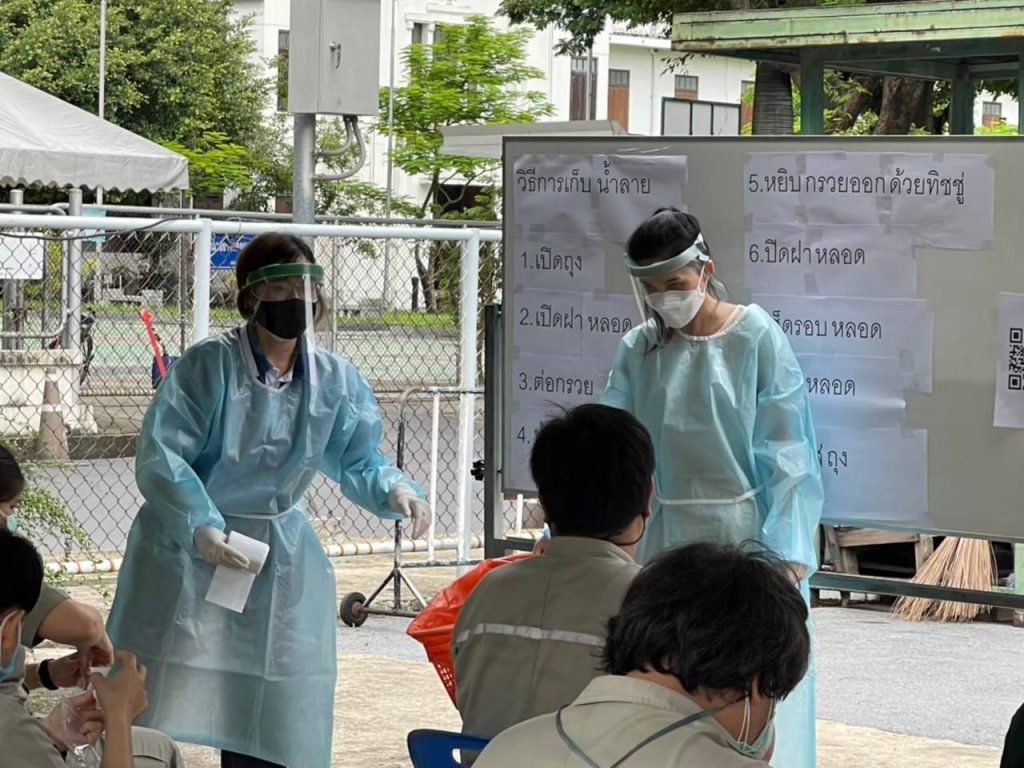
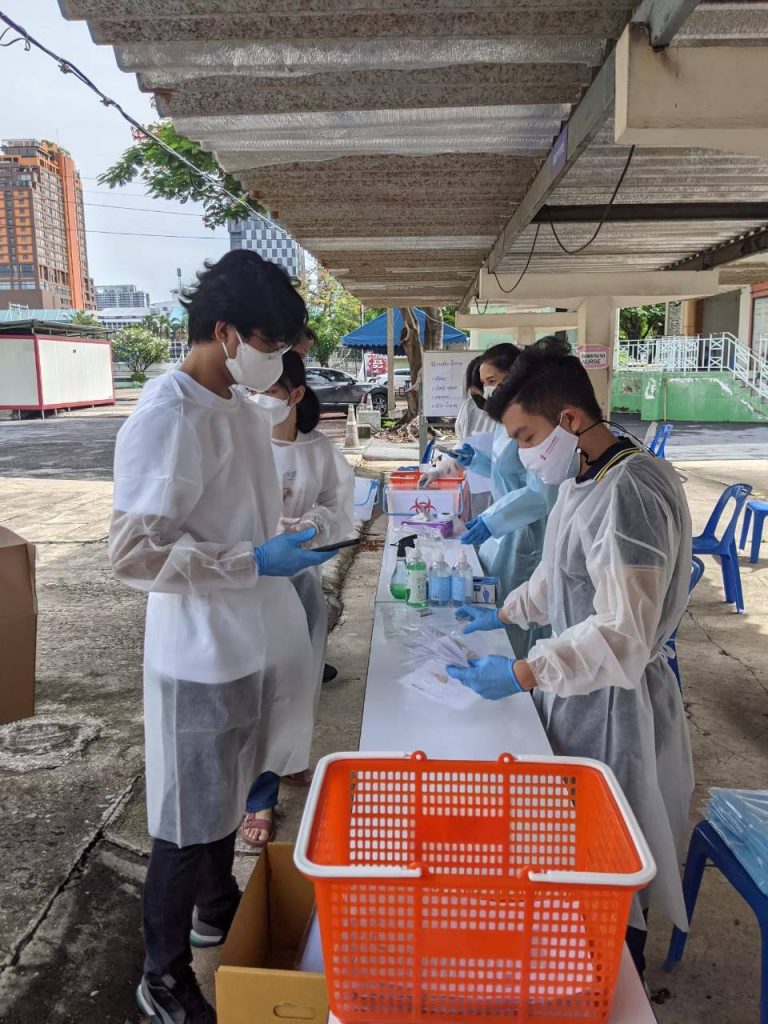
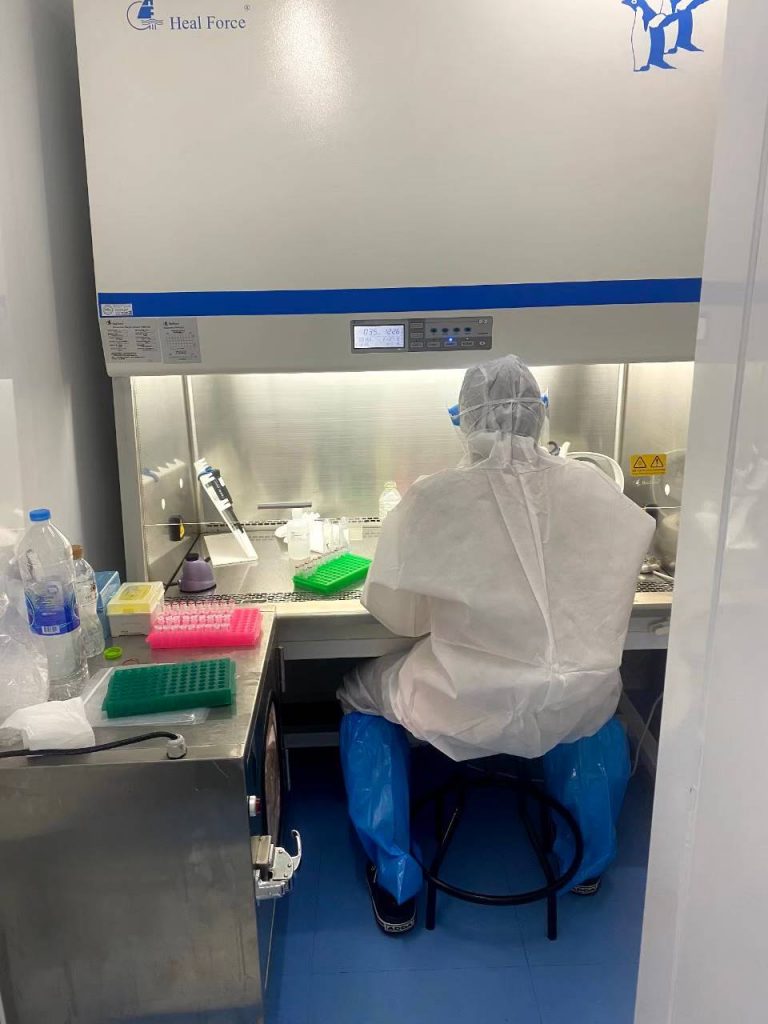
Vaccination Centre
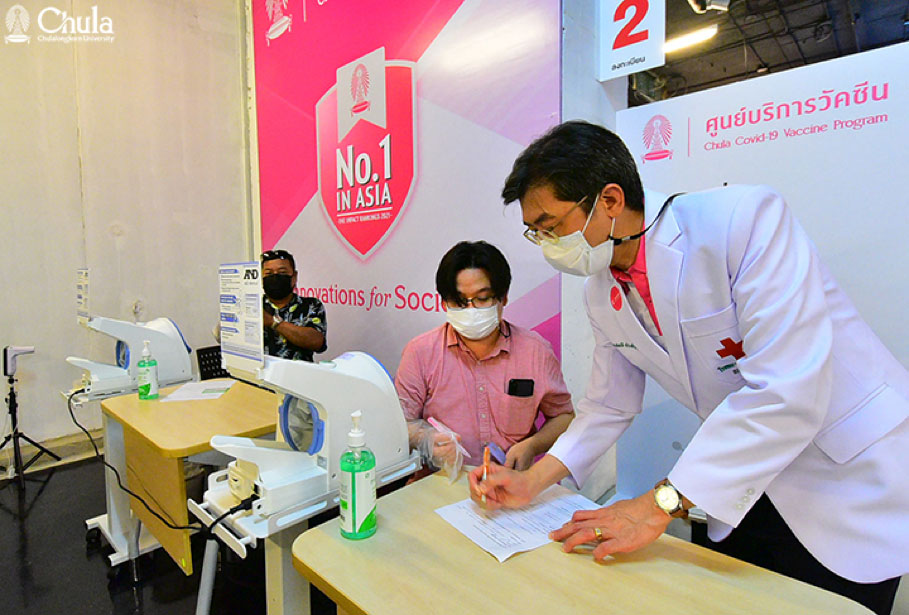
Vaccination is the most effective method for preventing disease transmission. COVID-19 disease herd immunity is required to prevent the disease’s spread. Chulalongkorn University established a vaccination centre for a specific purpose in order to be a vaccination hub for students, staff, and the general public, particularly the local community that lived from hand to mouth. In this instance, the term “general public” included immigrants and refugees for whom the COVID-19 vaccine was unavailable because they were not citizens. From 10 May to 30 December 2022.A total of 190,725 doses of vaccine were administered to patients.
[ https://www.chula.ac.th/news/51744/ ]
Survival Box; Virtual ward
Source: Thai PBS
[ https://www.youtube.com/watch?v=0-TxvgTtkk4 ]
COVID-19 is an infectious respiratory disease. COVID-19 symptoms range from non-existent to fatal, but the most common are fever, cough, and fatigue. Patients who are elderly or have certain underlying medical conditions are more likely to develop severe illness. COVID-19 spreads through the air when people breathe in droplets or small airborne particles containing the virus. During the outbreak, COVID-19 hospital was overrun with severe patients, so patients with mild to moderate clinical symptoms were advised to self-quarantine at home. However, some of the patients who had mild to moderate clinical signs later developed severe symptoms. Therefore, monitoring vital signs is essential for this patient group. Chulalongkorn University collaborated with the Chulalongkorn University Alumni Association and the Sharpener to develop a digital healthcare online platform as a virtual ward to monitor COVID-19 patients. The Survival Box, which contained vital sign equipment and some general medicine, was sent to patients at home. The patients can measure their vital signs and record the data on the Survival Box online platform. There were trained volunteers who were motoring patients in a virtual ward. If there was any emergency, the patients would get help immediately. From January 7 to July 4, 2022, 4521 Survival Boxes were given to students, staff, and alumni of Chulalongkorn University. A total of 5900 Survival Boxes were given to the general public, which included immigrants and refugees.
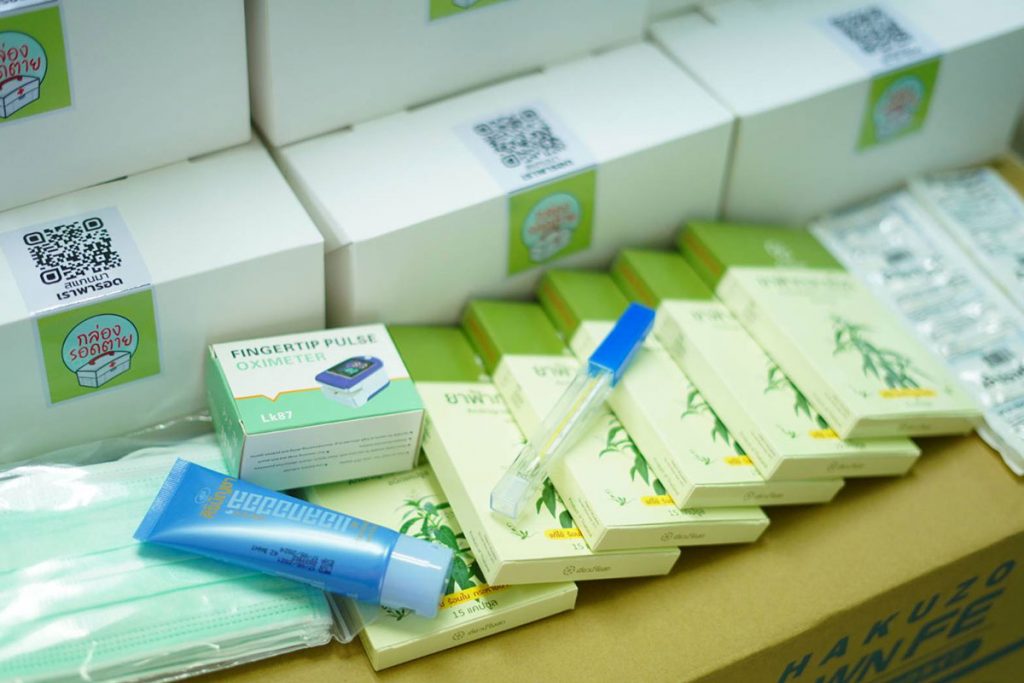
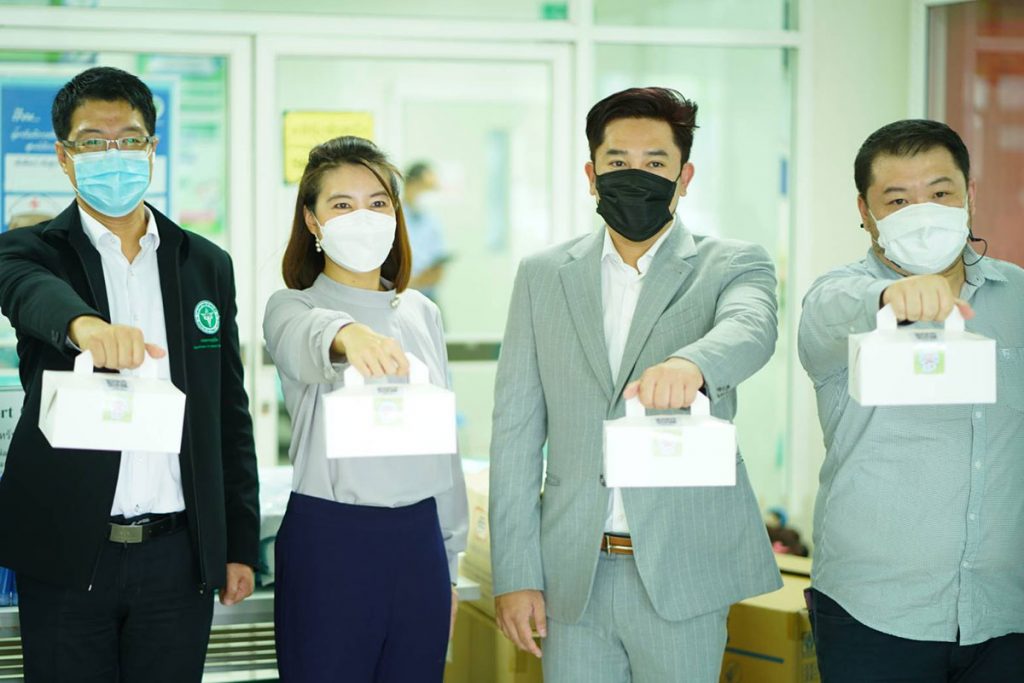
[ https://www.chula.ac.th/highlight/48984/ ]
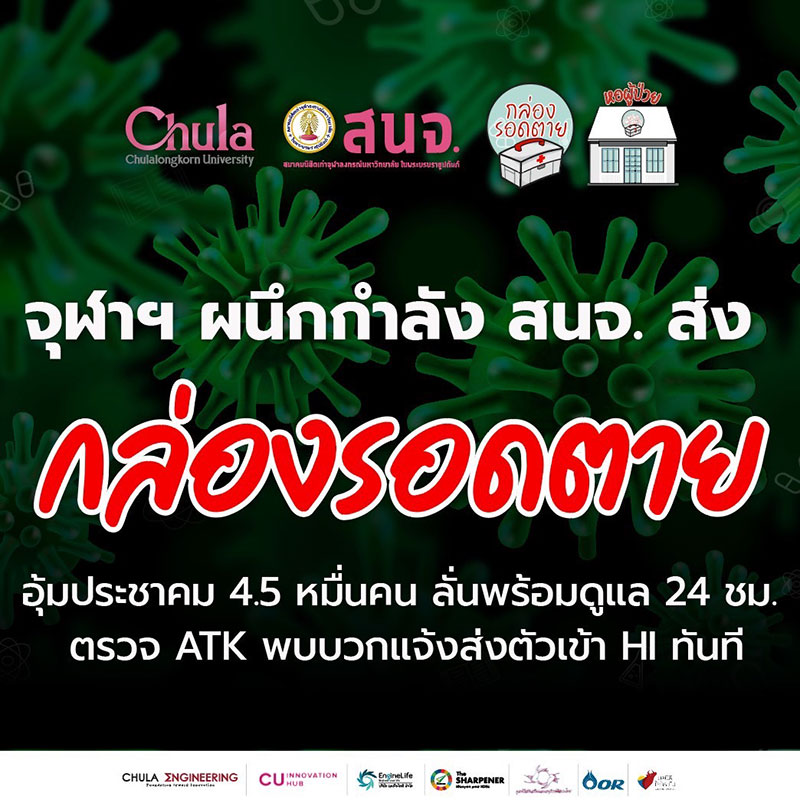
[ https://www.chula.ac.th/news/59175/ ]
BY
- Faculty of Medicine, Chulalongkorn University
- Faculty of Pharmaceutical Sciences, Chulalongkorn University
- Faculty of Engineering, Chulalongkorn University
- Chulalongkorn University Health Service Center
- Chulalongkorn University Alumni Association under the Royal Patronage of His Majesty the King
Related articles:
Others
Osotsala a Model Community Pharmacy
Pharmacists nationwide being recognised for the important role they play in the healthcare system

